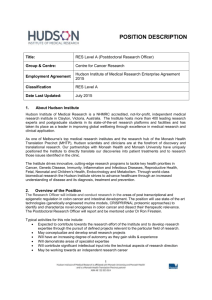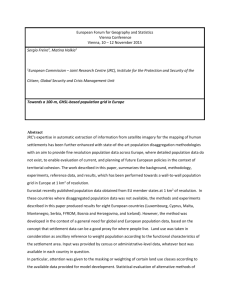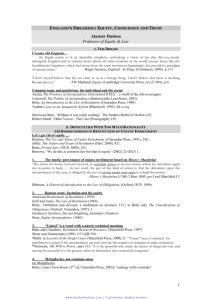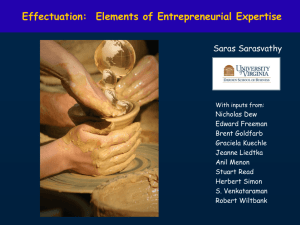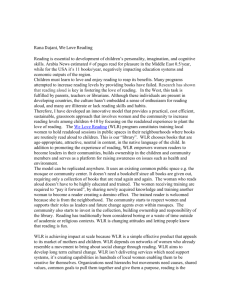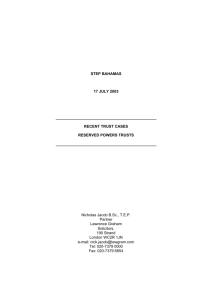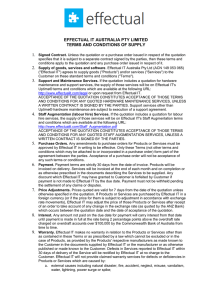reading material
advertisement
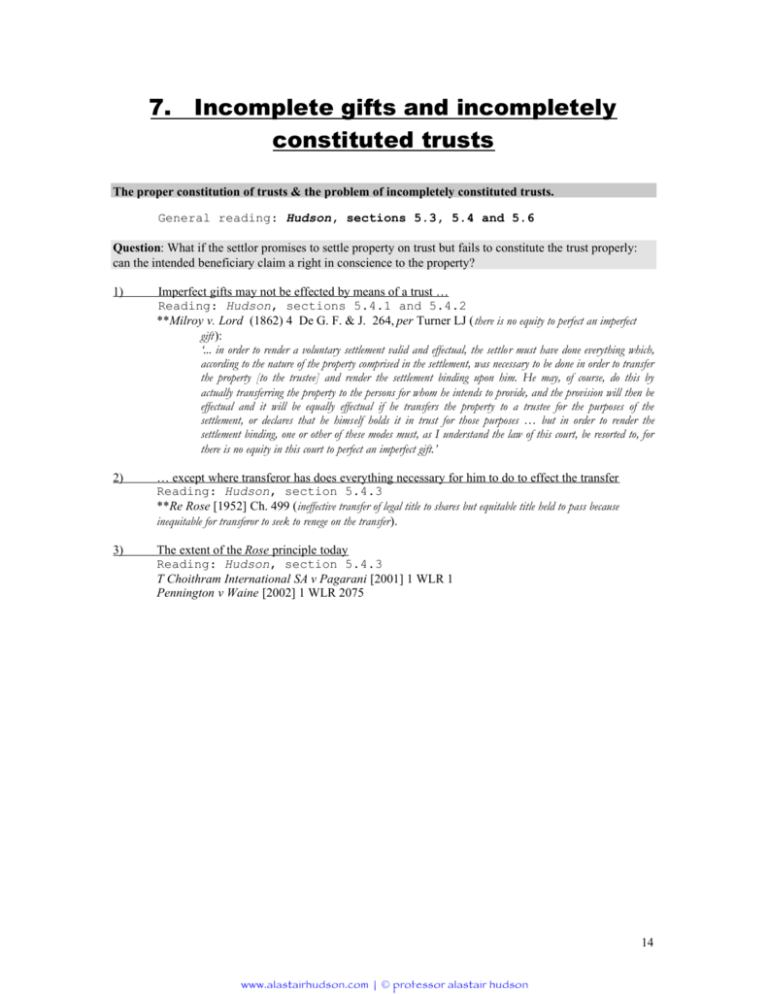
7. Incomplete gifts and incompletely constituted trusts The proper constitution of trusts & the problem of incompletely constituted trusts. General reading: Hudson, sections 5.3, 5.4 and 5.6 Question: What if the settlor promises to settle property on trust but fails to constitute the trust properly: can the intended beneficiary claim a right in conscience to the property? 1) Imperfect gifts may not be effected by means of a trust … Reading: Hudson, sections 5.4.1 and 5.4.2 **Milroy v. Lord (1862) 4 De G. F. & J. 264, per Turner LJ (there is no equity to perfect an imperfect gift): ‘... in order to render a voluntary settlement valid and effectual, the settlor must have done everything which, according to the nature of the property comprised in the settlement, was necessary to be done in order to transfer the property [to the trustee] and render the settlement binding upon him. He may, of course, do this by actually transferring the property to the persons for whom he intends to provide, and the provision will then be effectual and it will be equally effectual if he transfers the property to a trustee for the purposes of the settlement, or declares that he himself holds it in trust for those purposes … but in order to render the settlement binding, one or other of these modes must, as I understand the law of this court, be resorted to, for there is no equity in this court to perfect an imperfect gift.’ 2) … except where transferor has does everything necessary for him to do to effect the transfer Reading: Hudson, section 5.4.3 **Re Rose [1952] Ch. 499 (ineffective transfer of legal title to shares but equitable title held to pass because inequitable for transferor to seek to renege on the transfer). 3) The extent of the Rose principle today Reading: Hudson, section 5.4.3 T Choithram International SA v Pagarani [2001] 1 WLR 1 Pennington v Waine [2002] 1 WLR 2075 14 www.alastairhudson.com | © professor alastair hudson




